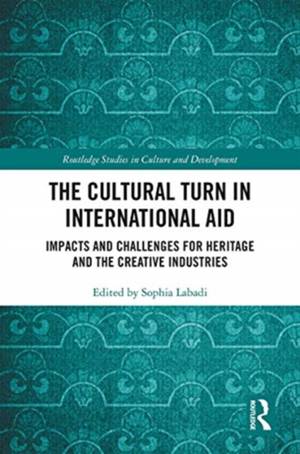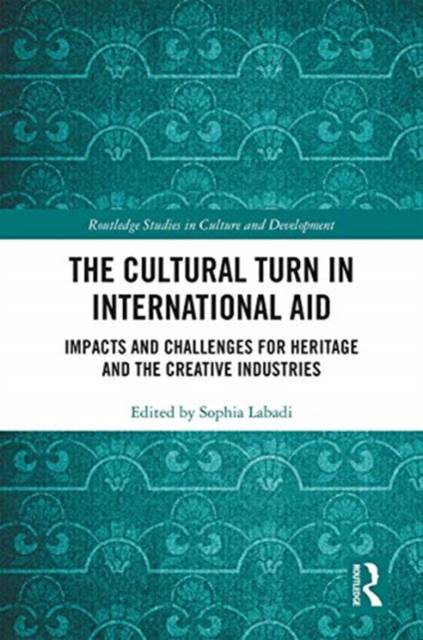
- Afhalen na 1 uur in een winkel met voorraad
- Gratis thuislevering in België
- Ruim aanbod met 7 miljoen producten
- Afhalen na 1 uur in een winkel met voorraad
- Gratis thuislevering in België
- Ruim aanbod met 7 miljoen producten
The Cultural Turn in International Aid
Impacts and Challenges for Heritage and the Creative Industries
Omschrijving
The Cultural Turn in International Aid is one of the first volumes to analyse a wide and comprehensive range of issues related to culture and international aid in a critical and constructive manner. Assessing why international aid is provided for cultural projects, rather than for other causes, the book also considers whether and how donor funded cultural projects can address global challenges, including post-conflict recovery, building peace and security, strengthening resilience, or promoting human rights.
With contributions from experts around the globe, this volume critically assesses the impact of international aid, including the diverse power relations and inequalities it creates, and the interests it serves at international, national and local levels. The book also considers projects that have failed and analyses the reasons for their failure, drawing out lessons learnt and considering what could be done better in the future. Contributors to the volume also consider the influence of donors in privileging some forms of culture over others, creating or maintaining specific memories, identities, and interpretations of history, and their reasons for doing so. These rich discussions are contextualised through a historical section, which considers the definitions, approaches and discourses related to culture and aid at international and regional levels.
Providing consideration of manifold manifestations of culture, The Cultural Turn in International Aid will be of great interest to scholars, students and practitioners. It will be particularly useful for those engaged in the study of heritage, anthropology, international aid and development, international relations, humanitarian studies, community development, cultural studies, politics or sociology.
Specificaties
Betrokkenen
- Uitgeverij:
Inhoud
- Aantal bladzijden:
- 264
- Taal:
- Engels
- Reeks:
Eigenschappen
- Productcode (EAN):
- 9780367776992
- Verschijningsdatum:
- 1/04/2021
- Uitvoering:
- Paperback
- Formaat:
- Trade paperback (VS)
- Afmetingen:
- 156 mm x 234 mm
- Gewicht:
- 399 g

Alleen bij Standaard Boekhandel
Beoordelingen
We publiceren alleen reviews die voldoen aan de voorwaarden voor reviews. Bekijk onze voorwaarden voor reviews.











